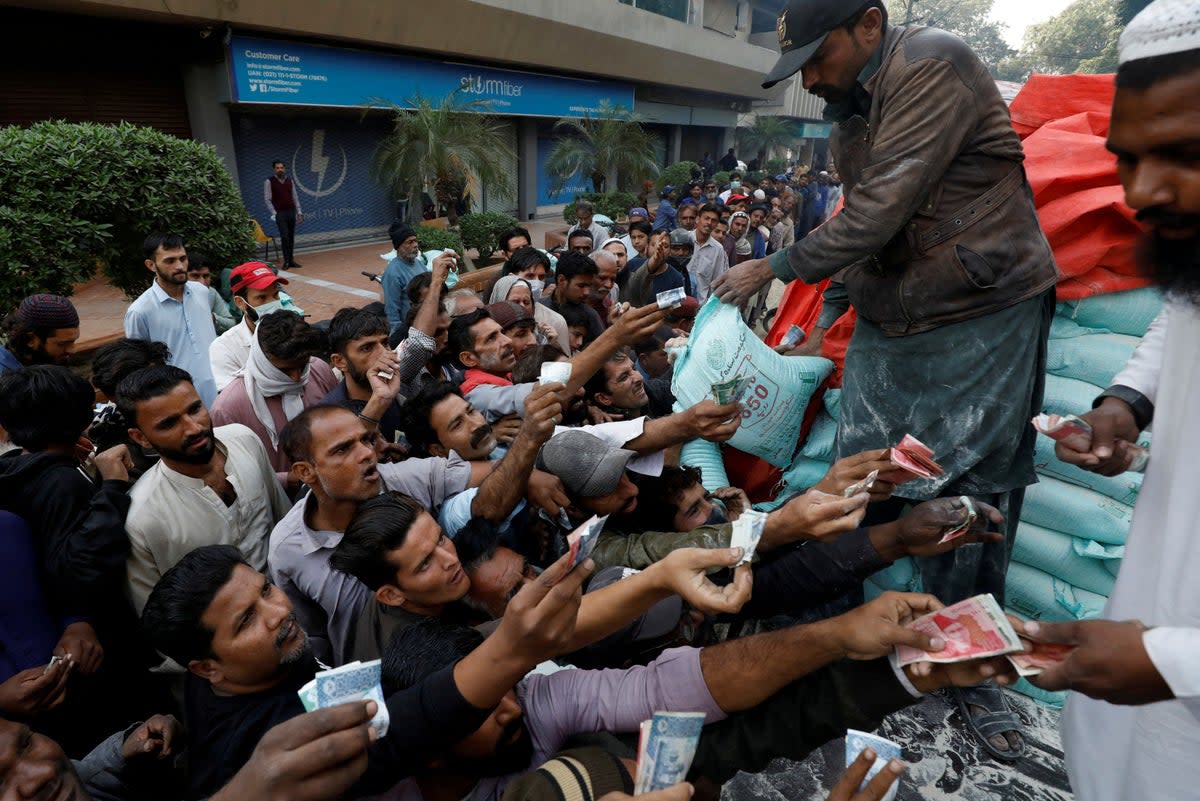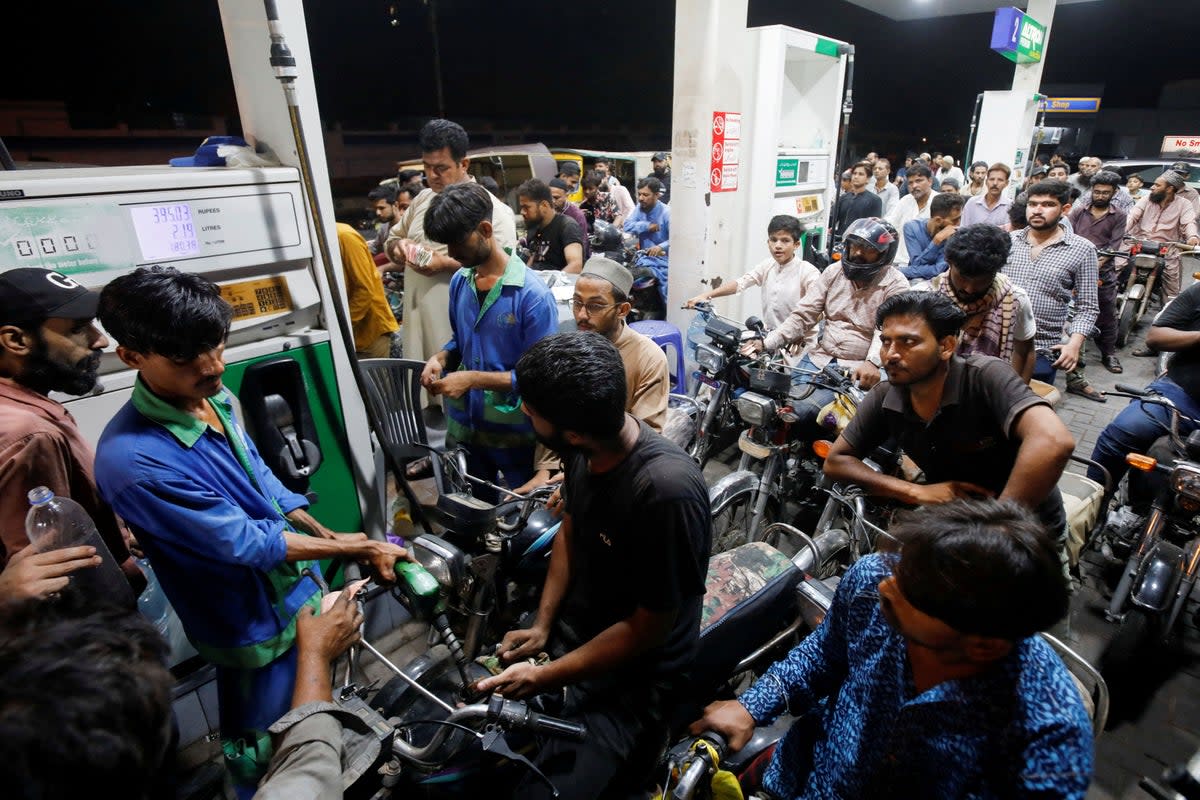IMF seeks time that Pakistan doesn’t have as bailout deal talks break down

Pakistan has failed to strike a deal with the International Monetary Fund (IMF) for a crucial $1.1bn loan.
The cash-strapped nation continues to run out of time to avert defaults and replenish dwindling foreign currency reserves.
The IMF said “considerable progress” had been made in negotiations during their 10-day visit to Islamabad to discuss the ninth review of a $6bn bailout package.
“Virtual discussions will continue in the coming days to finalise the implementation details of these policies,” it said in a statement.
The IMF has sought more time as the nation’s economy has been pushed to the limit by last year’s devastating floods and endless political turmoil, coupled with a deadly onslaught of terrorist violence.
The stall in reaching a deal with the IMF for more money from a $6.5bn loan program suggests no immediate reprieve for the country, the foreign currency reserves of which have tanked to less than $3bn.
Analysts believe that’s enough only to pay for imports for the next two weeks.
A $1.1bn tranche from the bailout package has been on hold since December last year as officials reviewed the country’s compliance with a 2019 agreement.

The talks, which began on 31 January, have already crossed the 9 January deadline. The government will resume virtual discussions from Monday after receiving an agreement draft on Friday.
Finance minister Ishaq Dar who previously hoped the deal will be finalised on Thursday said the agreement draft will be reviewed over the weekend.
Prime minister Shahbaz Sharif last week called the country’s economic crisis “unimaginable”. “You all know we are running short of resources,” Mr Sharif said, adding Pakistan “at present was facing an economic crisis that’s beyond imagination”.
The 71-year-old, who took the helm of the country last year after the dramatic ouster of Imran Khan, has blamed his predecessor for violating the terms of the 2019 agreement.
In the fallout of the stalled talks, the country’s dollar bonds due for repayment in April slumped 4.6 per cent. Other bonds with longer repayment dates fell between 0.2 and 0.3 cents to leave them at less than half their face value.
The IMF has given new instructions to Pakistan, asking it to raise and collect taxes, as well as slash subsidies without burdening poor people, government officials said.
“The timely and decisive implementation of these policies along with resolute financial support from official partners are critical for Pakistan to successfully regain macroeconomic stability and advance its sustainable development,” IMF staff said.
Last month, a nationwide power outage in Pakistan left millions of people without electricity for hours. While the leadership blamed the outage on technical failure in the power grid, several feared Pakistan could be soon running out of the fuel to power its electricity plants.
The country has raised gasoline prices by 16 per cent with inflation peaking at a high of 25 per cent as it spirals deeper into an economic crisis.
The country is still under the impact of economic instability caused by summertime floods that killed 1,739 people and destroyed 2 million homes, causing more than $16bn of damage. Large swathes of the country were under water, causing widespread destruction to farmland and cattle.
The floods skyrocketed the prices of basic products like wheat and onions to never seen before rates.
